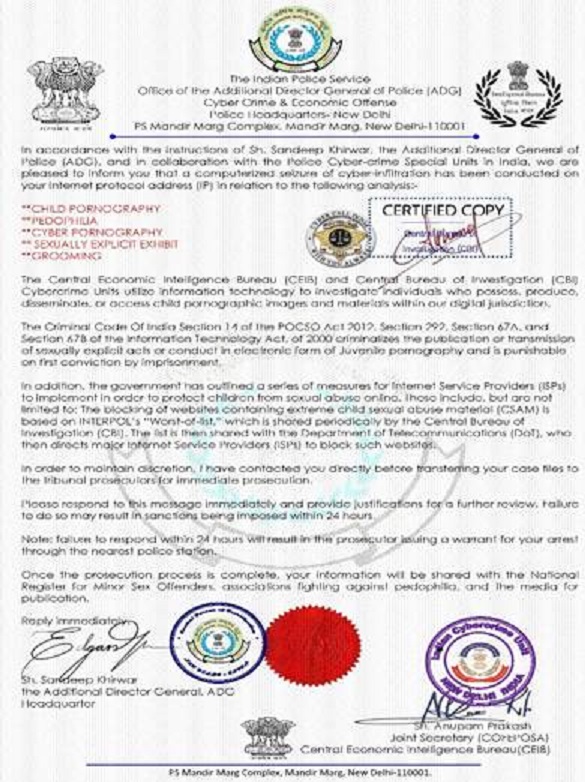Case Law Details
Alankit Imaginations Ltd Vs DCIT (ITAT Delhi)
Introduction: In the case of Alankit Imaginations Ltd vs. DCIT (ITAT Delhi), the Income Tax Appellate Tribunal (ITAT) addressed penalty proceedings under Section 271(1)(b) of the Income Tax Act, 1961, and Section 272A(1)(d) of the Act. The central issue revolved around whether penalties could be imposed solely based on a ‘non-cooperative attitude’ of the assessee. This article delves into the case, offering a comprehensive analysis of the proceedings and the tribunal’s decision.
Common Background: The appeals in question pertain to assessment orders and related penalty orders, and they were consolidated for adjudication. These appeals cover multiple assessment years, including 2010-11 to 2019-20. The penalties were imposed under Section 271(1)(b) and Section 272A(1)(d) of the Act.
Assessee’s Argument: The counsel for the assessee contended that in response to the notice under Section 153(C) of the Act, the returns were duly filed, and assessments were completed with zero tax liability in specific assessment years. It was highlighted that in the case of Alankit Associates Pvt. Ltd., there was no existence of the company for the assessment year 2010-11. The key contention put forth by the counsel was that penalty orders were passed without a proper application of mind, as these orders did not specify the non-compliance or notice not adhered to by the assessee. The counsel relied on the precedent set by the same Bench in the case of Jai Kuwar vs. ITO.
Revenue’s Stand: The Department, represented by the Departmental Representative (DR), maintained that there were no errors in the findings of the Tax Authorities below.
Analysis and Tribunal’s Ruling: Upon careful consideration, the Tribunal observed that all the penalty orders were remarkably similar, with the only difference being the figures relevant to different assessment years. The crucial issue was that the penalty orders did not specify which notice, under which provisions of law, was issued, served, and not responded to by the assessee. It was noted that the assessments had been completed under Section 153C of the Act, and no adverse inference had been drawn against the assessee to warrant an order on a best judgment basis under Section 144C.
The assessment orders presented in the case did not indicate that the Assessing Officer (AO) had made any observations during the assessment, highlighting specific documents or information sought but not supplied by the assessee. It appeared that the dispute centered around an external hard disk that the assessee failed to produce, claiming it was unreadable or corrupt. Consequently, the AO issued a notice at the conclusion of the assessment.
The Tribunal firmly held that unless it was established in the assessment or penalty order that during the assessment proceedings, the AO had formed the opinion of intentional non-compliance justifying the issuance of notices under Section 271(1)(d) or Section 272A(1)(d) of the Act, the penalty could not be justified. The Tribunal found that the term ‘non-cooperative attitude’ alone could not serve as a sufficient basis for imposing a penalty without specific documentation of the notices, their non-compliance, and the AO’s satisfaction during the assessment proceedings that there was a failure to comply with the said notices, justifying the imposition of a penalty.
Conclusion: In conclusion, the ITAT Delhi ruled that penalties could not be imposed solely on the grounds of a ‘non-cooperative attitude’ of the assessee. The penalty orders were set aside as they did not adequately establish the essential elements required for imposing penalties under the relevant sections. This case underscores the significance of due process and specific documentation in penalty proceedings, emphasizing that penalties should be based on established non-compliance rather than subjective assessments of attitude.
FULL TEXT OF THE ORDER OF ITAT DELHI
Heard and perused the record.
2. The issues in the appeals have common background in the assessment orders and impugned penalty orders therefore are taken up together for adjudication. The appeals in ITA no. 895 to 897/Del/2023 for A.Y. 2014-15 to 2016-17 and in ITA no. 901 to 906/Del/2023 for A.Y. 2010-11 to 2016-17 arise out of penalty proceedings u/s 271(1)(b) of the Income Tax Act, 1961 (hereinafter referred to as ‘the Act’) while the appeal in ITA no. 895 to 900/Del/2023 for A.Y. 2017-18 to 2019-20 and ITA no. 901 to 910/Del/2023 for A.Y. 2017-18 to 2019-20 arise out of penalty order u/s 272A(1)(d) of the Act.
3. Ld. AR has pointed out that in response to the notice u/s 153(C) of the Act, the returns were filed and the assessments were completed with nil demand in A.Y. 2011-12 in the case of Alankit Associates Pvt. Ltd. and nil demand being in A.Y. 2019-20 in the case of Alankit Imaginations Ltd. It was also pointed out that in case of Alankit Associates Pvt. Ltd. in A.Y. 2010-11 the company was not inexistence. The contention of Ld. AR has been that in all the appeals thus, penalty orders have been passed without application of mind as the orders do not disclose as to which notice was not complied with. It was submitted that the assessments are completed u/s 153(C) and not u/s 144 as such there cannot be any penalty for non-compliances and reliance in this regard has been primarily placed on the judgment of this Bench in the case of Jai Kuwar vs. ITO, ITA no. 7314/Del/2019 order dated 23.03.2023.
3.1. On the other hand Ld. DR submitted that there is no error in the findings of Ld. Tax Authorities below.
4. The Bench has given thoughtful consideration to the matter on record and what comes up from the impugned orders is that all the orders are verbatim similar except for change of figures relevant to the assessment years. The penalty order does not mention as to which notice and under what provisions of law was issued, how served and which was not responded by the assessee. As the matter of fact, the assessments have been completed u/s 153C of the Act and no adverse inference was drawn against the assessee to pass an order on best judgment basis u/s 144C.
5. The respective assessment orders cited before us in PB also do not show that if at the time of assessment. Ld. AO had made observation as to which specific document or information sought was not supplied. It appears from the penalty orders that the dispute was with regard to some external hard disc which was sought to be produced but was not produced by the assessee on the basis that it was not readable or corrupt and on that basis the AO issued notice at the time of conclusion of assessment.
6. The Bench is of considered opinion that unless it is established in the assessment order or even under the penalty order that at the time of assessment proceedings itself, Ld. AO had formed opinion that there was intentional noncompliance justifying issuing notice u/s 271(1)(d) or u/s 272A(1)(d) of the Act, Ld. AO is not justified to levy penalty. Ld. CIT(A) has also sustained the addition on the basis of ‘non-cooperative attitude’ of the assessee. To the mind of this Bench, ‘non-cooperative attitude’ as such in itself cannot be the basis of imposing penalty under the relevant section, as above, without specifically bringing on record the specific notices, their specific non-compliances and the satisfaction of the ld. AO recorded during the assessment proceedings that there has been failure to comply with the said notice for which imposing penalty is warranted.
7. In the light of aforesaid, the orders of Ld. tax Authorities below cannot be sustained. The grounds are sustained and all the appeals are allowed. The impugned penalty orders are set aside.
Order pronounced in the open court on 13th September, 2023.



























